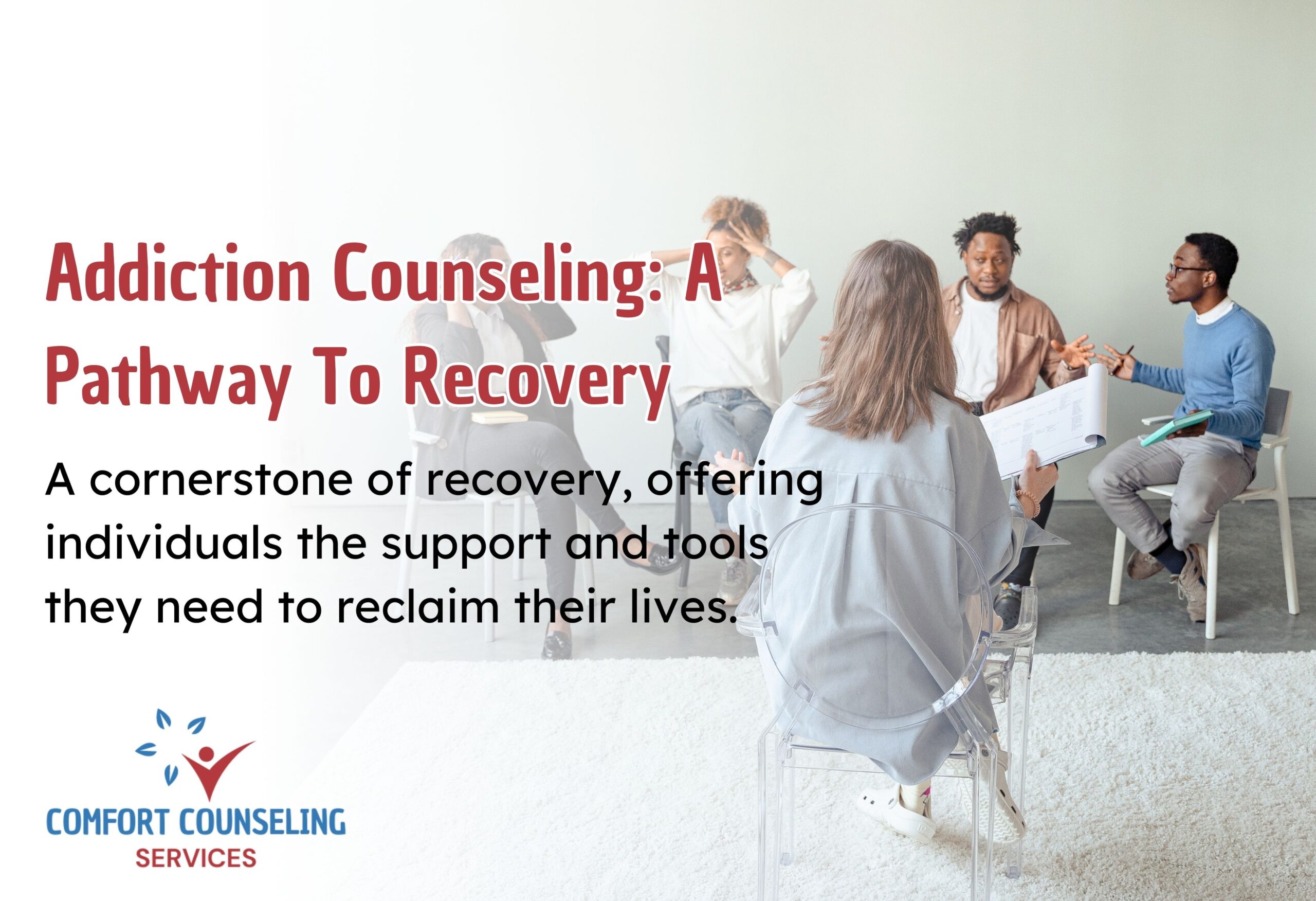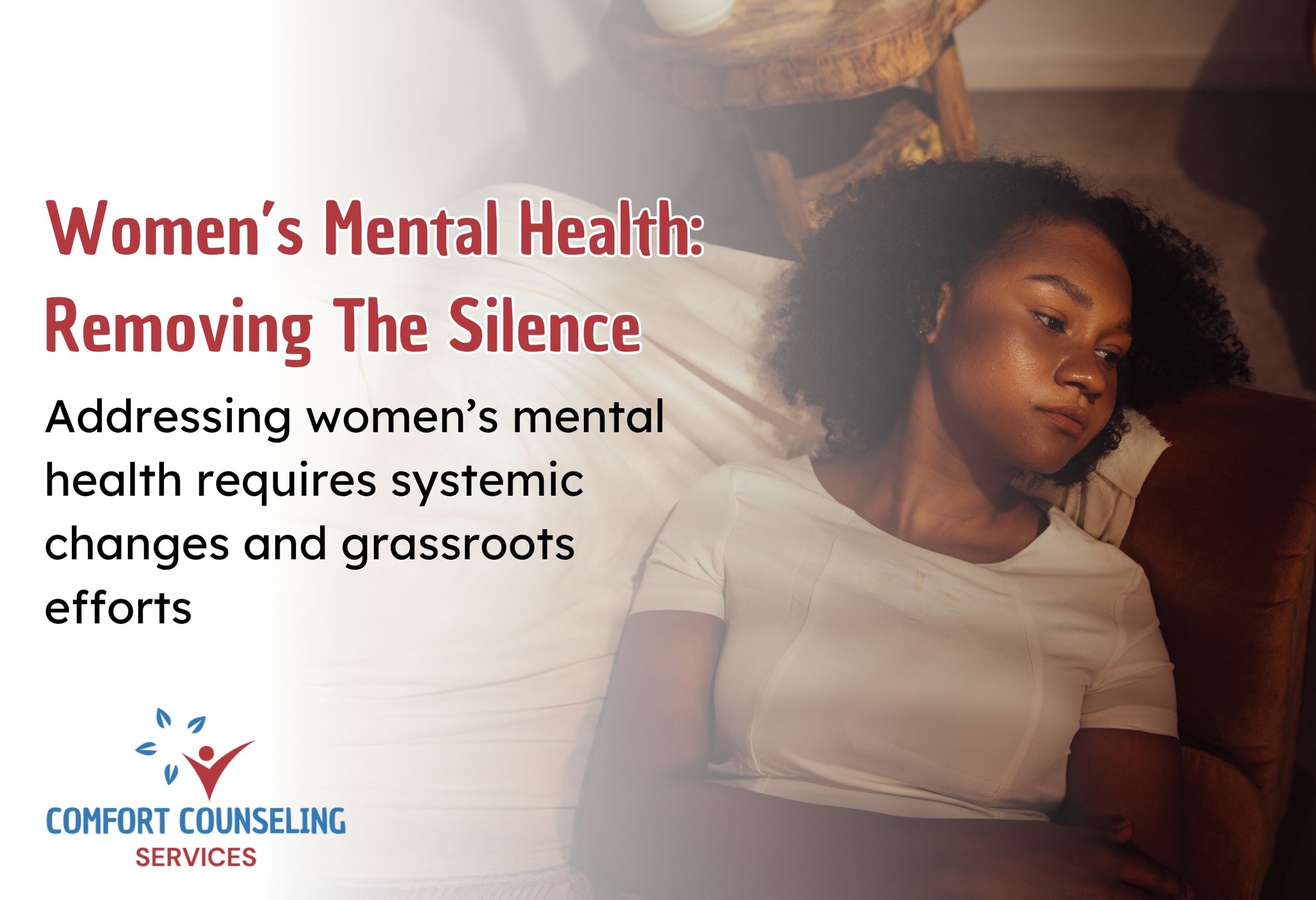Addiction counseling is a specialized therapeutic approach aimed at helping individuals overcome substance use disorders, behavioral addictions, and the challenges that come with them. Addiction can take many forms, from alcohol and drug dependency to gambling and internet addiction. Effective counseling addresses the physical, emotional, and psychological aspects of addiction, providing tools for recovery and sustainable sobriety.
Understanding addiction
Addiction is a complex condition characterized by compulsive behaviour despite harmful consequences. It alters brain function, particularly in areas responsible for decision-making, reward, and impulse control (Volkow et al., 2016).
Addiction can be categorized into:
- Substance use disorders (SUDs): Dependence on alcohol, drugs, or prescription medications.
- Behavioural addictions: Compulsions such as gambling, gaming, or shopping.
The role of addiction counseling
Addiction counseling plays a vital role in:
- Helping individuals understand the root causes of their addiction.
- Developing coping mechanisms for triggers and stressors.
- Rebuilding relationships and addressing social challenges.
- Creating relapse prevention strategies.
Research shows that counseling significantly improves recovery outcomes when combined with medical treatment (McLellan et al., 2000).
Common techniques in addiction counseling
- Cognitive-Behavioural Therapy (CBT): Helps identify and change negative thought patterns contributing to addictive behaviours (Beck, 1993).
- Motivational Interviewing (MI): Encourages individuals to find intrinsic motivation for change (Miller & Rollnick, 2012).
- 12-Step facilitation therapy: Supports participation in programs like Alcoholics Anonymous (Kelly et al., 2020).
- Family therapy: Addresses familial dynamics that may contribute to addiction.
- Mindfulness-based interventions: Focus on awareness and emotional regulation (Bowen et al., 2014).
Steps in Addiction Counseling
- Assessment and diagnosis: Gathering information about the addiction and its impact on the individual’s life.
- Developing a treatment plan: Setting realistic, individualized goals.
- Counseling sessions: Regular one-on-one or group sessions to address issues and build skills.
- Aftercare planning: Creating a relapse prevention strategy and support network.
Challenges in addiction counseling
- Stigma: Fear of judgment prevents many from seeking help.
- Relapse risks: Addiction is a chronic condition with a high risk of recurrence.
- Co-occurring disorders: Many individuals with addiction also suffer from mental health issues such as anxiety or depression (Kessler et al., 2005).
Addressing these challenges requires a holistic approach, integrating medical, psychological, and social support systems.
The benefits of addiction counseling
- Improved mental health: Reduction in symptoms of depression and anxiety.
- Rebuilding relationships: Counseling helps repair damaged family and social ties.
- Long-term recovery: Provides the tools necessary for sustained sobriety.
Studies indicate that combining therapy with peer support increases the likelihood of successful recovery (Laudet, 2008).
Breaking the stigma around addiction counseling
Stigma remains a significant barrier to seeking help. Public awareness campaigns and community support play crucial roles in reducing the shame associated with addiction (Livingston et al., 2012).
Conclusion
Addiction counseling is a cornerstone of recovery, offering individuals the support and tools they need to reclaim their lives. By addressing the root causes of addiction and empowering individuals with coping strategies, counselors play an essential role in fostering lasting change. Seeking help is the first step toward a healthier, addiction-free life.
References
- Beck, A. T. (1993). Cognitive therapy of substance abuse. Guilford Press.
- Bowen, S., Chawla, N., & Marlatt, G. A. (2014). Mindfulness-based relapse prevention for addictive behaviors. Guilford Press.
- Kelly, J. F., Humphreys, K., & Ferri, M. (2020). Alcoholics Anonymous and other 12‐step programs for alcohol use disorder. Cochrane Database of Systematic Reviews.
- Kessler, R. C., et al. (2005). Co-occurring addictive and mental disorders. Journal of Dual Diagnosis, 1(1), 5-62.
- Laudet, A. B. (2008). The impact of social support on successful recovery. Addiction Science & Clinical Practice.
- Livingston, J. D., et al. (2012). The effectiveness of interventions for reducing stigma related to substance use disorders. Addiction, 107(1), 39-50.
- McLellan, A. T., et al. (2000). The role of addiction treatment in medical systems. Journal of the American Medical Association.
- Miller, W. R., & Rollnick, S. (2012). Motivational interviewing: Helping people change. Guilford Press.
Volkow, N. D., et al. (2016). Neurobiologic advances from the brain disease model of addiction. New England Journal of Medicine, 374(4), 363-371.



